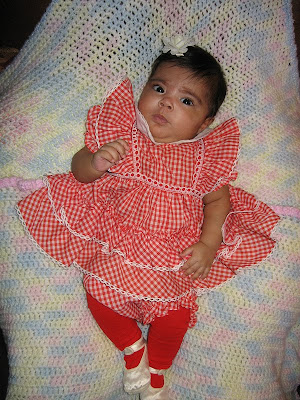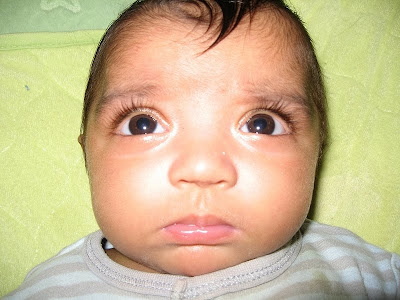To my co-workers at Plano 911:
I vowed to myself and everyone around me all night long that I wouldn’t send “the final email.” I lied. Whether it be the gift basket and nummy food or the outpouring of support, I find myself surrendering to sentimentality.
While I’m sad to be leaving Plano 911, it couldn’t be for two better reasons. I want to extend a huge thank you to everyone who has helped me and worked alongside me these 12 years, though many have moved on as well in that time. I’m so proud of what we all accomplish as a team on the floor and on staff, and will leave with many fond memories. I hope to someday work on a team as capable, dedicated, and innovative as Samantha Baumgartner and Sheila Powell again. I’m proud to have worked with so many amazing people, who labor in obscurity in a basement and no one they serve will ever really see or appreciate the sheer difficulty of what they do. We are very tough on ourselves and regimented and push hard to be better. And I’ve seen enough of other agencies by now to realize that even if we aren’t perfect, it makes us among the best in the country at what we do.
Working at Plano 911 has made me a stronger and smarter person in so many ways, through experience and training you just can’t get in any other profession and even at any other agency. I am a lot tougher of a gal than the nervous young woman that started here in 2001. I am a better person.
I’m not sure if many other workplaces would have given me the encouragement and understanding Plano PSC has. I thank everyone for that support. I’d like in particular to thank Susan Carr, who helped make it possible to take the opportunity back in September of 2011 and has offered continual support along the way. Had I not worked here, I don’t know if I would have endured the trials that these past 5 months as well as I have.
But something I do know is that my daughter would not be alive if I hadn’t worked here.
The day I gave her CPR will be forever in my mind. It was like I was outside of myself watching, calmer than I think would be possible in that situation for anyone who hasn’t been on the other end of a 911 call for so many years. I knew her breathing was agonal the second I saw and heard it. I’d been watching her breathing religiously for months, and there was very obviously no air moving. That meant I had to act because there were minutes left, and the paramedics would be there too late if I didn’t do something. I knew that because her 20 second apnea alarm had never gone off that there was still oxygen in her blood and so I started with compressions first. I remember thinking how she seemed so much like one of those plastic dolls I’ve practiced on over the years, just as limp but heavier.
I told my mother to call 911 and put it on speaker, double verifying my address and phone number then stating “baby not breathing” and answering the EMD questions in order and telling the poor Carrollton Calltaker to go to card 9 and protocol A. I was careful to speak slowly and clearly despite the urgency of the situation. She was a little stupefied, but she recovered well and coached me through the rest and converted me over to ventilations and compressions. I was grateful she was there for me, and promised myself if we made it through this I would thank her personally and introduce her to my daughter.
I made sure her head was tilted back, covered her mouth and nose with my mouth, and blew the two puffs of air in and saw her chest rise and deflate. I made sure I didn’t waste time switching back and forth between compressions and ventilations. I made sure to press down far enough and come all the way up between pumps. I told the Calltaker to use the compressions monitor, but I was already singing the “Staying Alive” song in my head so I already knew I was going fast enough.
I knew even in the moment I was doing everything right, but I also knew that in 12 years I’ve never had a documented life save that we know of because CPR so often is not enough. I remember having the “it’s not working!” reaction I used to teach about in ETC class, then consciously realize I was having it and continued CPR telling myself “this is helping her even if I don’t see a response.” But the truth is as much as I didn’t want it to be, I really thought it was the end. But 5-7 minutes later the paramedics arrived and laid her on the bed and told me she had a pulse of 120. Then I thought there was a chance after all. The first few hours it looked grim, but then the most talented doctor I’ve ever met threw a hail Mary treatment at her and it began to work. For the week after that, she clung to life on a ventilator in one of the best NICU’s in the country and they could have lost her at any moment. But now three months later she is alive and recovered. Within a year the health problems from her prematurity that led up to that awful day should resolve completely. And the Calltaker that took that call has no idea that she even lived, and went on to the next phone call. Just like Georjon did a few minutes ago, and Jenn S. may have saved a guy a little while before that. All in just one regular night at Plano 911. There is a whole other end to that story that they’ll never know, so we all just move on and will never realize the true impact we have each had on so many lives.
The one time I have a known life save…it’s my own daughter. It’s like every 911 call I’ve ever taken was a rehearsal for the most important and terrifying moment of my life. The paramedics played a critical role, as did the responding officers and of course all the hospital staff. But 911 is the true first responder that all the rest of them depend on.
This job is like no other. What we do is important and changes and saves lives. It is interesting and scary and fun and exciting and boring and annoying all at the same time. PD and NCIC and FD and Calltaking are all valuable and challenging in their own way. But I’m only going to leave you one bit of advice.
Nothing we do is more life critical than being an Emergency Medical Dispatcher. So even if you don’t always like that part of your job, keep your skills up and be a damn good one.





















